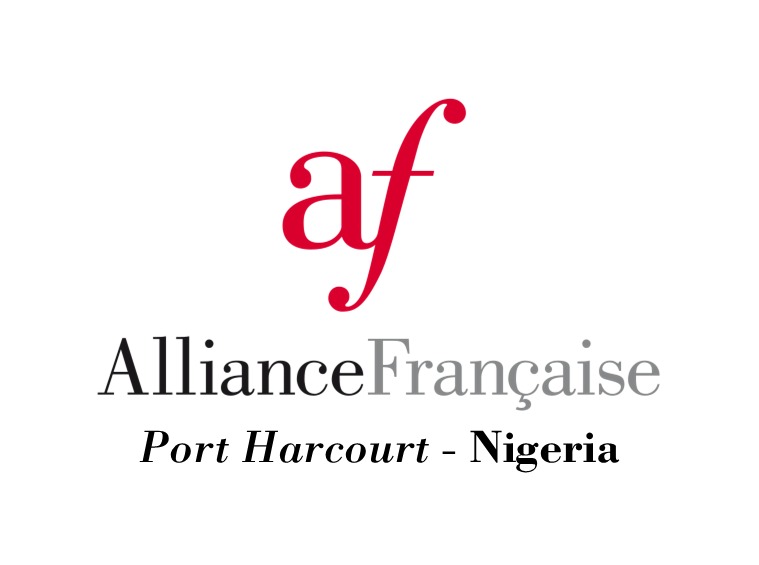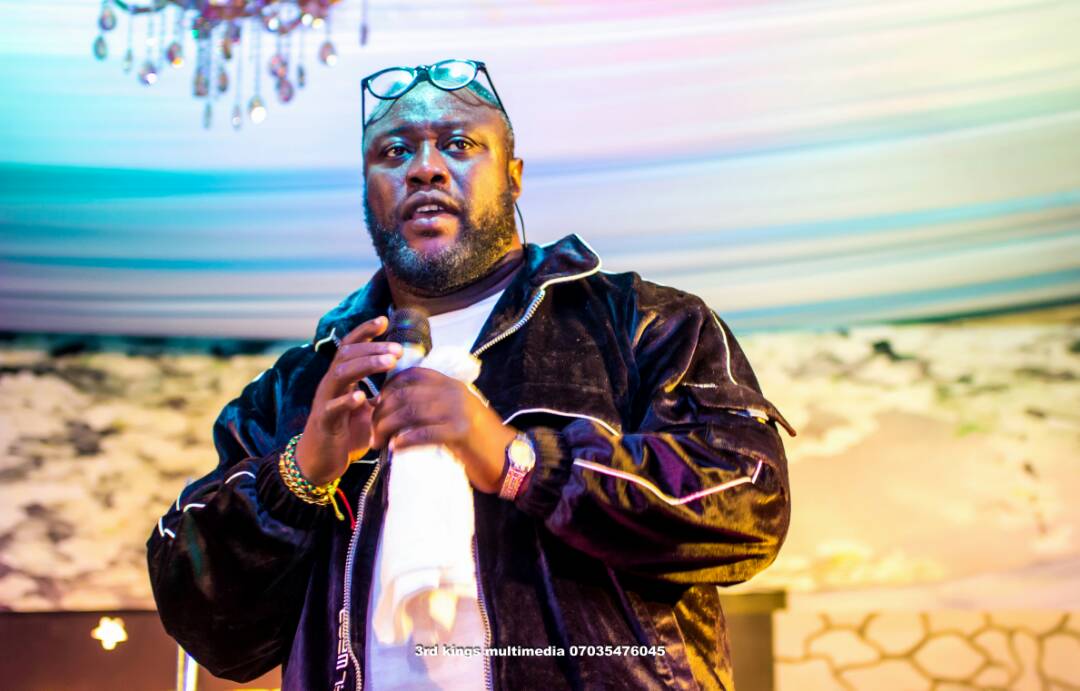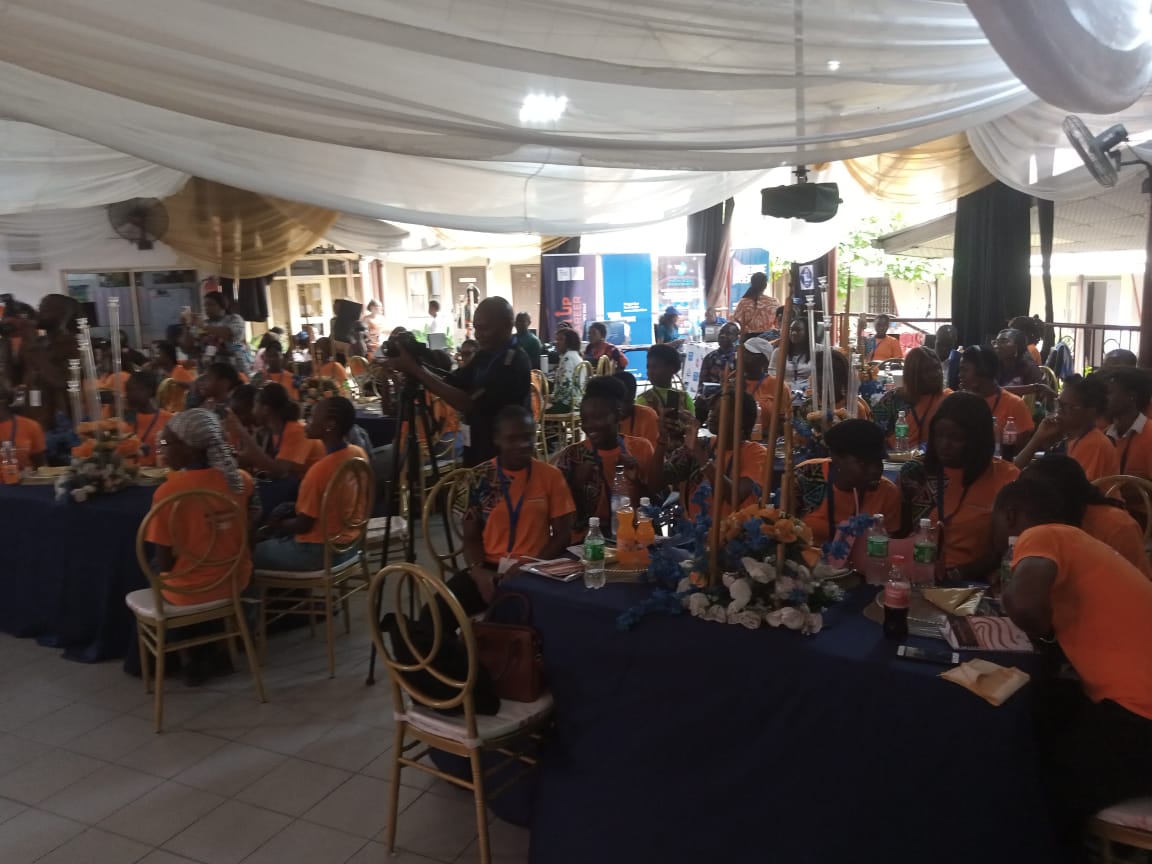Entertainment
Nigeria’s Entertainment Milestones
As Nigeria celebrates 61 years of independence and freedom from the shackles of British colonial masters, a retrospective view of the entertainment enclave before and after independence in October 1, 1960 reveals a dynamic and vibrant industry basking in successful milestones, an industry that has risen from obscurity to global limelight, from burst to boom and from grass to grace.
The laudable achievements are recorded in all aspects of the entertainment industry vis-à-vis the movie, music, comedy, beauty pageants, tourism, arts and culture.
Movie
In a work titled “The Development of Video in Nigeria: A Retrospective Account” published in Research Gate, the author, Armstrong Idachaba traced the history of the Nigerian film industry to the pre-independence era when the first film was exhibited in August 1903 at the Glover Memorial hall Lagos.
But a 1926 movie titled ‘Palava’ is the first film to be entirely shot in Nigeria, produced by Gregory Barkas, an English filmmaker. It is on record as the debut film to feature Nigerian actors in a speaking role. Then, ‘Fincho’ released in 1957 and produced by Sam Zebba was the first film entirely copyrighted to the Nigerian film unit and was also the first film to be shot in colour.
However, Wale Adenuga’s ‘Papa Ajasco’ sitcom in 1996 became the first blockbuster movie grossing about N40 million in three days, this was after the oil boom of between 1973 to 1978 which boosted the cinema culture spurred by then Head of State, General Yakubu Gowon’s indigenization decree which demanded the transfer of ownership of about a total of 300 film theatres from their foreign owners to Nigerians and many citizens could afford to visit the cinema and also purchase television sets.
A second major boom in the film industry is said to have started with ‘Living in Bondage’, a 1992 two-part thriller directed by Chris Obi Rapu was released as a direct to video film. From the beginning of the 21st century, the Nigerian film industry which came to be known as Nollywood grew to become the second largest film industry in the world after India’s Bollywood as regards the number of productions.
Today, Netflix arguably the world’s largest film streaming giant has its sights set on Nigeria which has been restructuring the industry with primary focus on quality production with partnerships that have and are still berthing four Netflix originals including ‘Citation’, ‘King of BoysII. Actors and actress from across the country have become household names in the country’s, Ibo, Hausa and Yoruba films which have continued to partner in making works that cut across the cultures.
As at 2016, the movie industry realised an amazing N16 billion from 50 indigenous films. The figure represented close to 30 percent of the N3.5 billion generated from 28 cinemas across the country including movies from Hollywood of America, Bollywood of India, Gollywood of Ghana and other countries.
From the era of Amaka Igwe’s checkmate, the most popular television soap of the 1990s to the advent of the first Nollywood movie, Living In Bondage, movies like Diamond Ring, Out Of Bounds etc had generated a buzz, pushing the actors into wealth and stardom, while films like The wedding Party, A Trip To Jamaica, Okafor’s Law, 90 Days and The CEO, all shattered box offices and made great impacts in major international film festivals across the globe and attracted investors to the country.
It is an economic miracle that the industry has not only flourished, but grown exponentially considering the conservative budgets movies producers have to work with as well as antiquated distribution outlets that held the industry back for years. Today, Nigerian movies are ruling the world.
Music
Away from the film industry, the music industry has also recorded tremendous achievements since independence. One of Nigeria’s early genres of popular music from 1900 was palmwine music named so because it was frequently played in bars with sounds composed from stringed instruments. It had pioneers like Babatunde King, Irowolede Denge and Tunde Nightingale.
In the late 1930s and early 1940s, Akpala music, a rousing song for Yoruba Muslims evolved into a song for general entertainment and became popular in the 1950s. Another branch of music that became popular is Juju music and those who became most known for it were artistes like King Sunny Ade, Ebenezer Obe, Sir Shina Peters, etc. Other types include highlife with stars like Victor Uwaifor, Onyeka Onwenu, Alhaji Dan Maraya Jos Maman Shatta, J. Martins and Flavour amongst others.
The evolution of music in Nigeria has led to more genres such as Fuji music with modern artistes like Davido infusing it to Afro pop. Fela Anikulapo Kuti was one name synonymous to Afrobeat which emerged as a tool for activism. In recent times, artistes like Burna Boy, Wizkid, Femi Kuti, Lagbaja, etc have followed the same trend.
Presently, Nigeria’s music industry is one of the most vibrant in the area of entertainment and arguably measures up to what is obtainable anywhere in the world. Stars like Burna Boy have won BET Best International Act and was a Grammy Award winner in the category of World Best Album in 2021 among several other international awards. Wizkid is also a Grammy Award winner and the first Nigerian to bag an international award from the American Society of Composers, Authors and Publishers (ASCAP) in recognition of his role in writing of Drake’s chart topping hit single ‘One Chance’.
Peter and Paul Okoye of the defunct P-Square once told CNN in an interview that they made as much as $100,000 per concert in countries outside Nigeria. Artistes such as 2 face of the African Queen fame, M.I Mbaga, D Bank J, Davido, etc have recorded similar feat in addition to various international awards inspite of shortcomings such as jaded content, the dismal collection and poor administration of loyalties as well as piracy, it is undeniable that Nigeria has scaled to heights that were only imaginable by prominent acts of the former decades when the then artistes only made money from record sales and live shows.
Today the channel has expanded like magic, the present day artists now make money through social media platforms, endorsements, sync licensing, tours, concerts and other business ventures. Innovations in technology is also an added advantage.
Comedy
Humour is used as an antidote for stress, pain and suffering. The humour mongers now joke into billions. Some years back, there was no such thing as comedy industry in Nigeria, but today, it is the third largest entertainment industry in Nigeria after film and music industries with an estimated worth of over N50 billion annually.
It is amazing that an industry which officially started about 10 years ago is generating so much revenue in Nigeria. Before then, there were comedians like Baba Sala, Samanja, Gringory, Clarius, Chief Zebrudaya, Papi Luwe, Jaqua, Adem Polo, etc. Their artistic prowess were showcased in the theatres, stages and television throughout the 80s. Unfortunately, for these men the profession was not as lucrative as it is today, but it is important to note that they exposed Nigerians to humour and were known as the first generation of Nigerian comedians.
The second generation of comedians include Yibo Koko, Ali Baba, Late Sam Loco Efe, Osuofia, Mr. Ibu, Okey Bakassi, Julius Agwu, Candoki, Igo Dye, Prince Hezekiah, Seyi Law, Helen Paul, Teju Baby Face, Elenu etc. Comedians are now regarded as humour prenures who are demandings and receiving millions of naira in endorsement and contracts both locally and internationally from brands like Globacom, MTN, Virgin Atlantic, Indomi, Coca-Cola etc.
The comedians were and still are increasing their exposure by hosting independent comedy shows and competitions in Nigeria and abroad. Examples include Opra Williams Nite Of A Thousand Laughs, Basket Mouth’s Uncensored Concert, AY’s Open Mic Competition, Ali Baba’s Spontainity comedy Shows as well as Julius Agwu’s Crack Ya Ribs. From Court Jestery, clowning, mockery and ridicule standup comedy has become a lucrative profession for talented youths.
Beauty Pageants
Since Nigeria became an independent nation in 1960, the country has witnessed the introduction of beauty pageants in various forms and shades from Miss Nigeria by Daily Times which started in 1957 to Silver Bird Groups Most Beautiful Girl in Nigeria (MBGN), Miss Teen Nigeria, Miss Nigeria in America, Miss Earth Nigeria to Miss Heritage Nigeria amongst others. They all claim to promote African heritage above Western values and ideas.
The role of beauty pageants and queens cannot be quantified as several beauty queens have gone ahead to represent the country in international pageants with great achievements. Some have gone ahead to hit headlines in politics. The wife of late Ikemba Nnewi, Emeka Odimegwu Ojukwu and former Miss Universe was appointed Nigeria’s Ambassador to Spain by former President, Dr. Good luck Jonathan.
Former beauty queen, Regina Askia became Face of Exquisite Brand, Beauty queen, Benedicta Akpana was appointed Executive Protocol Officer to Cross River State Governor, Ben Ayade. On the importance of beauty pageants to Nigeria’s economy and socio-cultural development, former beauty queen and Zonal Director, Miss Commonwealth Pageant, UK, Amaka Oguchi said.
“It is quite sad that Nigerians don’t understand the impact a beauty queen can make as a spokesperson. She can be a strong weapon used to awaken a sleeping giant, a beauty queen is a subtle representative of femine icon in any country, showcases a country’s fashion sense which is still geared towards promoting its cultural and tourism values which is captured into the nation’s Gross Domestic Products (GDP), it is also a source of leisure which forms part of the unmeasured aspect of the national welfare”.
Nigeria has gained a lot from several national, regional and international beauty pageants won by her citizens or hosted in the country. For instance, Nigeria gained global recognition and prestige when the country produced the first ever Black African Miss World, Agbani Derego and Miss Continental, Bianca Onoh-Ojukwu among others.
The relevance and benefits of beauty pageants far outweigh the scandals that have rocked some of the pageants in the country.
Tourism
In Nigeria, tourism has evolved to become one of the fastest growing industries since independence. This growth is driven by advanced technology and increased holidays culture with endowed geographical landscape which comprises the coastal beaches, mountains, historical monuments, wildlife, UNESCO approved heritage centres and diverse culture, Nigeria has been able to create milieu in global tourism.
This development is achieved through the collaborative efforts and investment commitment of a public/private partnership with major efforts from local committees and state governments. Tourist sites such as the mambilla plateau in Taraba, Obudu mountain resort and cattle resort in Cross River, Yankari Games Reserve in Bauchi, well preserved culture and tradition, waterfalls, ancient cities, historic artifacts and slave routes amongst others are centres of attraction and tourists first port of call.
Nigeria was accorded the right to host the United Nations World Tourism Organisation (UNWTO) Conference in 2018. This endorsement indicates a vote of confidence on the nation’s environment for business and tourism purposes. The sector has become a money spinning industry in Nigeria which attracts an annual revenue of about N80 billion to the nation’s economy.
Although some of the tourist sites in Nigeria are not well developed and operate below capacity, tourism remains the fastest growing industry in Nigeria and offers a dependable opportunity to lessen the burden of over dependence on oil revenue if properly harnessed.
Arts / Culture
There is a great affinity between tourism, arts and culture. The National Council for Arts and Culture (NCAC) is developing the Nigerian culture to become the country’s major revenue earner. Already the council has produced some artifacts under waste to wealth scheme which has attracted global interest and investment.
Recall that in 1977, the world gathered in Lagos for the World Black Festival of Arts and Culture (FESTAC 77) which was prime time when arts were thriving in the country, a period a lot of revenue was generated for the country as a result of promoting and showcasing the country’s rich cultural values. Unfortunately, since then, nothing tangible has been done to attract tourists of such magnitude. This portends danger for a country like Nigeria with diverse culture and tradition, as a country that fails to preserve its cultural heritage risks losing its identity.
Conclusively, “since independence in October 1, 1960, Nigeria’s entertainment enclave has been transformed into a multi billion naira industry contributing immensely to the country’s Gross Domestic product (GDP) and rebranding the nation’s image abroad”. It has also provided employment opportunities to a great number of her citizens and has also become the goose that lays the golden egg after the oil and gas sector.
This achievement is made possible by a number of factors which include public/private partnership and participation, huge investments, conducive and enabling environment for business growth as well as Gederal Government’s laudable policies and programmes. One of such policies is the granting of pioneer status to entertainment and creative industries and tax rebate for the stateholders which has enabled them to enter into lucrative contractual relationships with other investors within and outside the country.
The spread of digital technology such as higher level of Internet access, increased penetration of smart phones and other social media platforms have ushered in a positive multiplier effect on the various entertainment outlets in the country. The industry still has the opportunity to achieve greater height in the years ahead.
According to a recent report from the Price Water Cooper (PWC) titled Entertainment and Media outlook, 2015-2019, “Nigeria entertainment and media industry will rise from $7.68 billion in 2021 to $14.82 billion in 2025.
By: Jacob Obinna
Entertainment
World Music Day: Alliance Française Port Harcourt Showcases Talents

The Garden City of Rivers State Port Harcourt at the weekend joined other parts of the world to celebrate the World Music Day, 2025, as Alliance Française showcases talents.
The event which is internationally known as Fête de la musique was held at cultural hall of the Alliance Française was a remarkable concert with memorable experience.
The event brought together music lovers, students, Artistes and members of the community For an exciting evening live performances and cultural exchange.
The Tide Entertainment reports that the world Music Day, which was created 1982 in France by the then Minister of culture, Jack Lang, ‘ Fête de la Musique’ is now celebrated in more than 100 countries every 21st June, marking the first day of summer with free concerts and musical showcases in public spaces.
In Port Harcourt, the Alliance Française honoured the tradition by spotlighting four(4) emerging artistes offering a platform to young talents shaping the city’s contemporary scene.
The audience enjoyed an unforgettable moments as they were entertained by the powerful performances from Preach A, who is known for blending fitness culture with spoken words and rhythm.
Also, artiste Emmayany delivering a vibrant fusion of afrobeat and afro pop. A singer, song writer and a performing artiste with a distinct sound.
Others were Amarachy Uko, a sensational singer with passion for soul , R&B, pop music and afrobeat.
While DJ Prospel closed the night with an energetic DJ set that got the entire hall dancing.
Earlier, the Director, Alliance Française, Port Harcourt Mrs Marina Lacal high lighted the mission of the Alliance Française saying that the event was more than a concert.
According to her, the event was put together by the Alliance Française to promote cultural diversity and foster artistic expression by connecting a long standing French tradition with creativity of the local music scene, adding that the event offerers an avenue for dialogue between culture and generations.
She stated that the event is used to promote professional and bring amateur artistes to limelight via the platform of the Alliance Française which is aimed at promoting the French Language through cultural heritage.
She explained that the celebration is also a broader series of Fête de la musique activities organized by the 10 Alliance Française across Nigeria in sync with concerts held in France and around the world simultaneously.
She further noted that the occasion reaffirms the role of Alliance Française as a cultural bridge, one where French heritage meets the pulses of Nigerian youth.
It would be recalled that no fewer than 19 artistes applied to perform at the event in Port Harcourt, but only four got approval for appearance.
Entertainment
PMAN Set To Implement Performance Levy ‘Tomorrow

The Governor of the Performing Musicians Employer’s Association of Nigeria (PMAN), Rivers State chapter, Comrade Moses Mabadeje popularly known as Mozy B said that the body has announced plans to implement performance Levy on artistes in the state with effect from 21st June.
This was carried in a statement released to The Tide Entertainment, yesterday by the Deputy Governor of the association, Comrade Abiye Howells.
According to the Governor, the announcement was made by PMAN, the only governing body that regulates the music profession in Nigeria, as authorized by the Government of Nigeria, in line with the Trade Union Act.
He stated that those affected by the Levy include (Non members)bands, groups, Hotels, Bars, lounges, Event Centres, show organizers, promoters and other stakeholders hosting events which feature live music performances within the State.
However, the Levy does not apply to members of the Performing Musicians Employer’s Association of Nigeria. (PMAN).
Comrade Moses Mabadeje, explained that this drive is aimed at financing the association and supporting the welfare and interest of musicians as outlined in Article 8 of the PMAN constitution as amended (2023). Consequently, a PMAN task force has been set up to enforce and swing into action to effect this move.
He further said that event organizers, promoters and owners of event centers are expected to comply with this regulation as the Governor has urged stakeholders to collaborate with the association to ensure the successful implementation of the levy and the peaceful co-existence between PMAN and Stockholders.
Nancy Briggs
Entertainment
“French Up Your Career” PH, 2025 :Consul General Of France Harps On Proficiency In French

The Consul, General of France in Nigeria, Laurent Favier has encouraged French Learners to improve their skills on the language, as there are lots of opportunities up for grabs on the job market with fluency in French Language, saying that there are many other career paths which are often less well known to learners of French.
 Participants at the “French Up Your Career” event held in Port Harcourt.
Participants at the “French Up Your Career” event held in Port Harcourt.
Favier who disclosed this during the just concluded third edition of the seminar tagged “French Up Your Career” organized by Alliance
Française, Port Harcourt explained that learning French doesn’t mean adding a language to your resume. It rather provides learners with new opportunities. Irrespective of their area of interest, be it diplomatic and International relations, international development, translation and Interpretation or journalism.
According to the Consul General, it was important to create awareness for young Nigerians in Port Harcourt who desire to have better understanding of how been fluent in French can create diverse career opportunities for users of the languages in Nigeria and the world at large, emphasizing that proficiency in French could possibly make learner a bridge between Nigeria and fast-developing regions.
“You previously heard this morning about how you can improve your French skills. This afternoon you will discover how being fluent in French can provide a significant edge on the job market and lead to professional careers that you may not have even considered before,”
“This event comes at the right time, as it launches the celebration of the richness and diversity of French-speaking cultures, which will mobilize us for more than a month throughout Nigeria and alongside other French-speaking countries,” Favier added.
He further highlighted that French is spoken by over 300 million people across the world, saying that, it’s one of the official languages of the United Nations, the European Union, and the African Union.
“There are many neighbouring African countries to Nigeria ,who have French as one of their primary languages of communication including Cameroon, Chad, and the Democratic Republic of the Congo. So, what does this mean for you as students here in Nigeria?” He asked
“These sectors in which the French Embassy is often mobilized are the business and marketing field for example, as French is often the preferred language in many multinational companies, particularly those in the energy, oil and telecommunications sectors. I’m thinking as well in technology and IT,” he said
He noted that French-speaking countries in Africa are investing heavily in tech, innovation, and infrastructure, revealing that companies in Tech are looking for bilingual professionals to assist with software localization, customer support, and managing projects in French-speaking regions.
“The French embassy is not only mobilized to help learners discover promising sectors. We are also providing our support and expertise in
training teachers and optimizing university programs,” he summed up
Also, the linguistics cooperation attaché, French Embassy in Nigeria, Magaly Losange, who also gave a lecture at the seminar, in an interview with Newsmen said that the main purpose of the seminar was to be more informative and supportive to those who want to make a skill out of French Language,saying that as the linguistics cooperation attaché of the French Embassy it is her duty to promote French language through culture.
She cited traditional stereotypes as a major challenge affecting the growth and development of French in Nigeria, as school, teachers at the primary and secondary level in most cases teach French using the traditional way, where students learn French, but could not put words and grammar together as a skill for communicate.
“French is important. I don’t see French as colonization, l see French as a key to embrace globalization, l hope that learners will be inspired and ready to embrace the global village,” Losange said.
She however said that the French Embassy is working to ensure that equipments to facilitate the learning of French is put in place to enable learners improve their skills fast, which in two to three years learners should be able to communicate with French, advising learners to be intentional with learning the language, through social media and other workable devices to advance their skills for certification and better opportunities.
Highlight of the event which had about 250 participants in attendance was the eloquence award ceremony where students were awarded for their eloquence in French language by the Director, Alliance Française Port Harcourt, Mrs.Marina Lacal alongside the Linguistics cooperation attaché of the French Embassy in Nigeria, Magaly Losange.
After two edition of the seminar it was the turn of the Alliance Française, Port Harcourt to host the Third edition.
It would be recalled that the first edition of ” “French Up Your Career” event was organized at the Alliance Française Lagos on October 23, the second one at UNILAG on November 24, 2024 respectfully.
-
News4 days ago
Police Rescue Kidnapped Victim As Suspects Escape With Gunshots in Rivers
-
Politics4 days ago
Your Lies Chasing Investors From Nigeria, Omokri Slams Obi
-
Opinion4 days ago
Get Rid Of Wastes In PH
-
Business4 days ago
NCDMB, Dangote Refinery Unveil JTC On Deepening Local Content
-
Business4 days ago
Replace Nipa Palms With Mangroove In Ogoni, Group Urges FG, HYPREP
-
News4 days ago
Demonstrate Commitment In Improving Host Communities, Ibas Tells Corps Members
-

 Politics4 days ago
Politics4 days agoTinubu’s Contribution To Buhari’s Presidency Marginal – Ex-SGF
-
Opinion4 days ago
How Reliable Is AI

